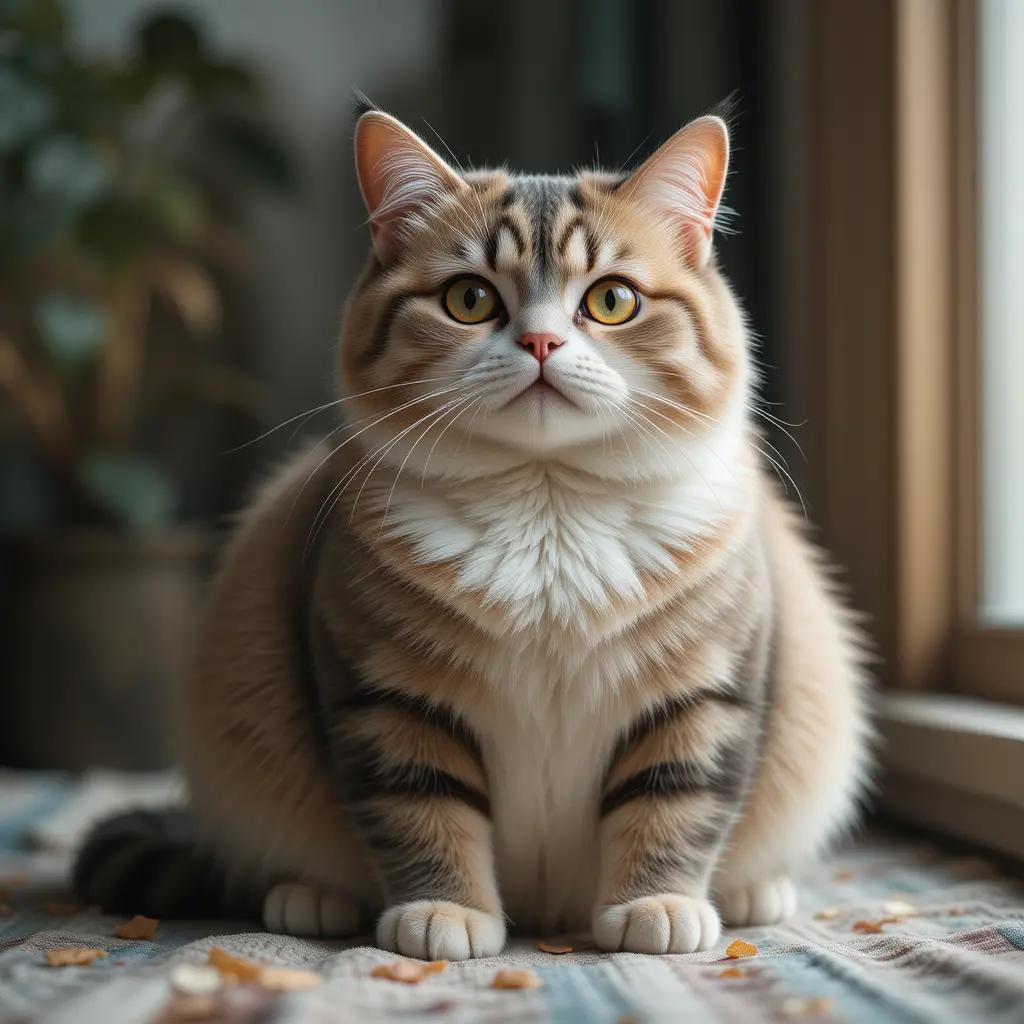Discover the best ways to keep your fat cat healthy and happy through balanced diets, fun activities, and proper care.
Introduction
Fat cats are undeniably adorable, with their round faces and plush bodies. However, carrying excess weight can pose significant health risks for your feline friend. From joint strain to heart disease, obesity in cats is a concern that requires proactive care. Fortunately, with the right strategies, you can ensure your chubby companion stays both healthy and happy. Let’s explore how balanced diets, engaging activities, and proper care can make all the difference.
The Importance of a Balanced Diet for Fat Cats
A balanced diet is the cornerstone of feline health, particularly for overweight cats. Overfeeding and poor-quality diets are common culprits behind feline obesity. Transitioning your fat cat to a healthier diet requires careful planning:
- Choose High-Quality Cat Food: Opt for nutrient-dense cat food with high protein content and low carbohydrates. Avoid fillers like corn and soy, which contribute empty calories.
- Portion Control Matters: Measure your cat’s meals precisely. Free-feeding can lead to overconsumption, so stick to scheduled feeding times.
- Consider Specialized Weight Management Food: Many pet food brands offer formulas designed specifically for weight control, which are lower in calories but still satisfying for your cat.
- Monitor Treats: Treats should not exceed 10% of your cat’s daily caloric intake. Opt for healthy, low-calorie treats instead of calorie-dense options.
Consult your veterinarian for personalized dietary recommendations, as every cat’s nutritional needs are unique.
Fun Activities to Keep Your Fat Cat Active
Exercise is as crucial for cats as it is for humans. However, getting a fat cat to move can be a challenge. Incorporating fun, engaging activities can encourage your feline to burn calories while enjoying themselves:
- Interactive Toys: Laser pointers, feather wands, and motorized toys can entice your cat to chase and pounce, providing excellent exercise.
- Climbing and Scratching Posts: Cats love to climb and scratch. Investing in a cat tree or wall-mounted shelves can stimulate natural behaviors while promoting physical activity.
- Puzzle Feeders: These not only slow down eating but also encourage your cat to work for their food, combining mental and physical stimulation.
- Play Sessions: Dedicate 10-15 minutes daily to active play with your cat. Activities like fetching small toys or chasing a ball can make a significant difference.
Remember to start slowly, especially if your cat is significantly overweight, to prevent stress or injury.
Proper Care to Support Your Fat Cat’s Well-Being
Beyond diet and exercise, maintaining your cat’s overall well-being is essential. Proper care involves addressing their physical and emotional needs:
- Regular Vet Check-Ups: Obese cats are more prone to conditions like diabetes, arthritis, and liver disease. Routine vet visits can catch potential issues early.
- Grooming Assistance: Overweight cats may struggle to groom themselves, leading to matted fur or skin infections. Help your cat with regular brushing and hygiene maintenance.
- Provide a Stress-Free Environment: Stress can contribute to overeating. Create a calm, secure space for your cat, free from loud noises or sudden disruptions.
- Monitor Weight Progress: Regularly weigh your cat to track their progress. Celebrate small milestones but remain consistent with your care plan.
Conclusion
Keeping your fat cat healthy and happy requires a combination of mindful feeding, engaging activities, and attentive care. By addressing your cat’s physical and emotional needs, you can enhance their quality of life and help them achieve a healthier weight. With patience and consistency, your feline friend will thrive, proving that a little effort goes a long way in ensuring their well-being.

